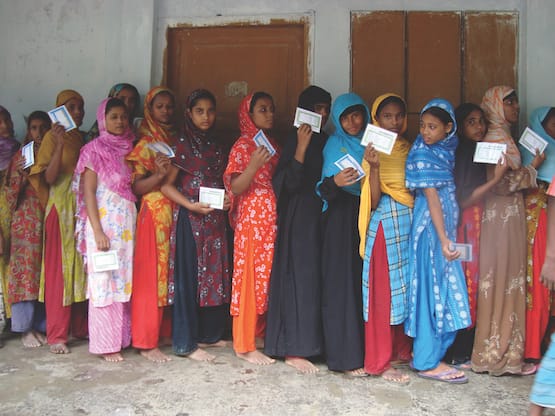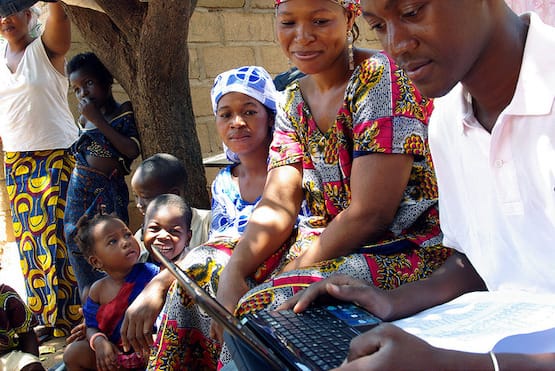The Problem: Lack of evidence on how to reduce global poverty
In recent decades, trillions of dollars have been spent on programs designed to reduce global poverty. Unfortunately, clear evidence on which programs succeed is rare — even when evidence does exist, it is not always used by decision-makers. This leads to programs that are either ineffective or not as effective as they could be, and often to wasted money and enduring poverty.
The Solution: Creating strong evidence and equipping decision-makers to use it
Governments, non-governmental organizations, and funders need reliable evidence on what works, what doesn’t work, and why. IPA works closely with decision-makers to answer their questions and to help them apply evidence to their programs. Through this model, IPA is able to not only create strong evidence but ensure it is used to improve the lives of people living in poverty.
How Innovations for Poverty Action works
Imagine if the trillions of dollars spent on aid in the past 50 years went to programs that had a tangible, cost-effective impact. IPA exists to make this vision a reality.
In partnership with top researchers in the field, IPA designs and implements randomized evaluations to measure the effectiveness of programs and policies aimed at alleviating global poverty. IPA’s evaluations do not simply give programs a passing or failing grade, but rather seek to uncover why they work and what adjustments will make a program more effective or work better at scale. Studies range in time from months to years — even decades. Throughout the research process, IPA works side-by-side with decision-makers––a collaborative model IPA calls “co-creation.”

IPA also recognizes that producing strong evidence is just one piece of the puzzle: that’s why, in addition to running evaluations, they share evidence with the right people at the right time, support partners to strengthen the use of data and evidence in policies and programs, and support the scaling of successful initiatives.
As an organization, IPA’s comparative advantage is its local presence in the countries where they have established offices. They work with local governments, NGOs, for-profits, and civil society to ensure that the right people are involved in crafting research questions, understanding the data they are collecting, and using it effectively. This allows IPA to develop strong relationships with decision-makers, a deep understanding of local contexts, and a long-term view for evidence-based policy. IPA has more than 1,000 research staff across 22 countries.

The results of their research have been used by governments and NGOs to develop or scale-up programs that are reaching hundreds of millions of people. Other impacts are relatively smaller, such as the scale-up of a procedural justice training to all police forces in Mexico City, and the creation of an organization that aims to reduce hunger by providing credit and storage to poor farmers in Nigeria.
IPA’s research is behind the work of seven of The Life You Can Save’s recommended charities, including Evidence Action’s deworming and safe water programs, which were both incubated by IPA.
